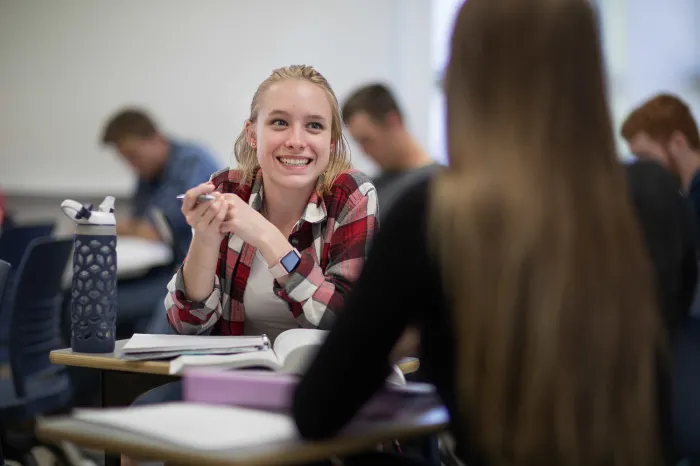
Gone are the days when students with special needs are separated from the general education classroom on a full-time basis.
Educators at Marietta College say that’s a good thing and they are training the next generation of teachers to educate children of all abilities in the same classroom.
Marietta College’s Education Department recently learned it was the recipient of an Ohio Deans Compact award. The college will receive $224,000 over two years that will be used to help extend a dual training approach to all levels of teaching — elementary, middle school and high school.
The Ohio Deans Compact initiative works to improve learning for all students, especially those from marginalized groups such as students with disabilities or those who are economically disadvantaged. Ohio Deans Compact offers incentive grants to colleges and universities in an effort to better prepare future educators to teach students with diverse needs.
Dr. Tanya Judd Pucella, Chair of the Education Department, said today’s teachers may find themselves the only teacher in a classroom made up of students of various abilities, or they may be a co-teacher. Either way, Marietta graduates will have the education they need to be dual licensed if they so choose — that means the ability to achieve a license to teach both general students and special needs students.
“We are preparing our teacher candidates to be inclusive teachers,” she said. “Everyone should be prepared to teach all students in their classroom.”
Dual preparation is an approach in which teacher candidates are prepared to be a special education teacher and a general education teacher at a specific grade band-elementary (Pre-K through 5th grade), middle childhood (4th through 9th grades in two content areas) and now high school.
The College previously received grants to develop the dual curriculum for both elementary education and middle childhood education students in two content areas. This latest grant will be used to extend the dual approach to those students studying to be high school teachers.
The grant also serves as a resource for the professional development of educators already out working in local school districts.
“The goal is for the general education teacher and the special education teacher to teach together and plan together, to where you can’t distinguish between the two,” Judd Pucella said.
Education Professor Ann Kaufman is one of the educators behind Marietta’s program and will be working to help implement the program for students learning to become high school teachers. She said students coming into Marietta College’s inclusive program are excited by the possibility of obtaining dual licenses.
“This is very exciting,” she said. In fact, a student who started at the College before the inclusion program began decided to switch into the program now that it’s being offered. Eventually, all education students attending Marietta College will go through a dual/inclusive program.
“The reality is that we have to teach future teachers the skills they need to teach all kids — whether those are kids are gifted, kids with disabilities or kids where English is their second language — our classrooms are only going to get more diverse,” she said.
Stephanie McAfee ’20 (Belpre, Ohio) is a SEED major, meaning she is majoring in Early Childhood Education and Special Education.
“The job of the teacher is to teach. The job of the student is to learn. If you have a student who needs help in a class where the teacher cannot help, neither are doing their job,” she said. “If a teacher can learn to teach all students, the specials needs students and general education students can be integrated.”
For McAfee, some elements of the dual program are easier than others.
“Time management is the hardest, but the students with special needs do not deserve to be excluded from ‘regular’ classes or their classmates,” she said. “I also believe that integrating classrooms will allow for students to learn about one another and the bullying of those with special needs will minimize. As a teacher, I believe it benefits us to learn this so that we are prepared to teach through anything. It also allows us to teach all of the students in one classroom without needing to take students in and out causing more disruption.”